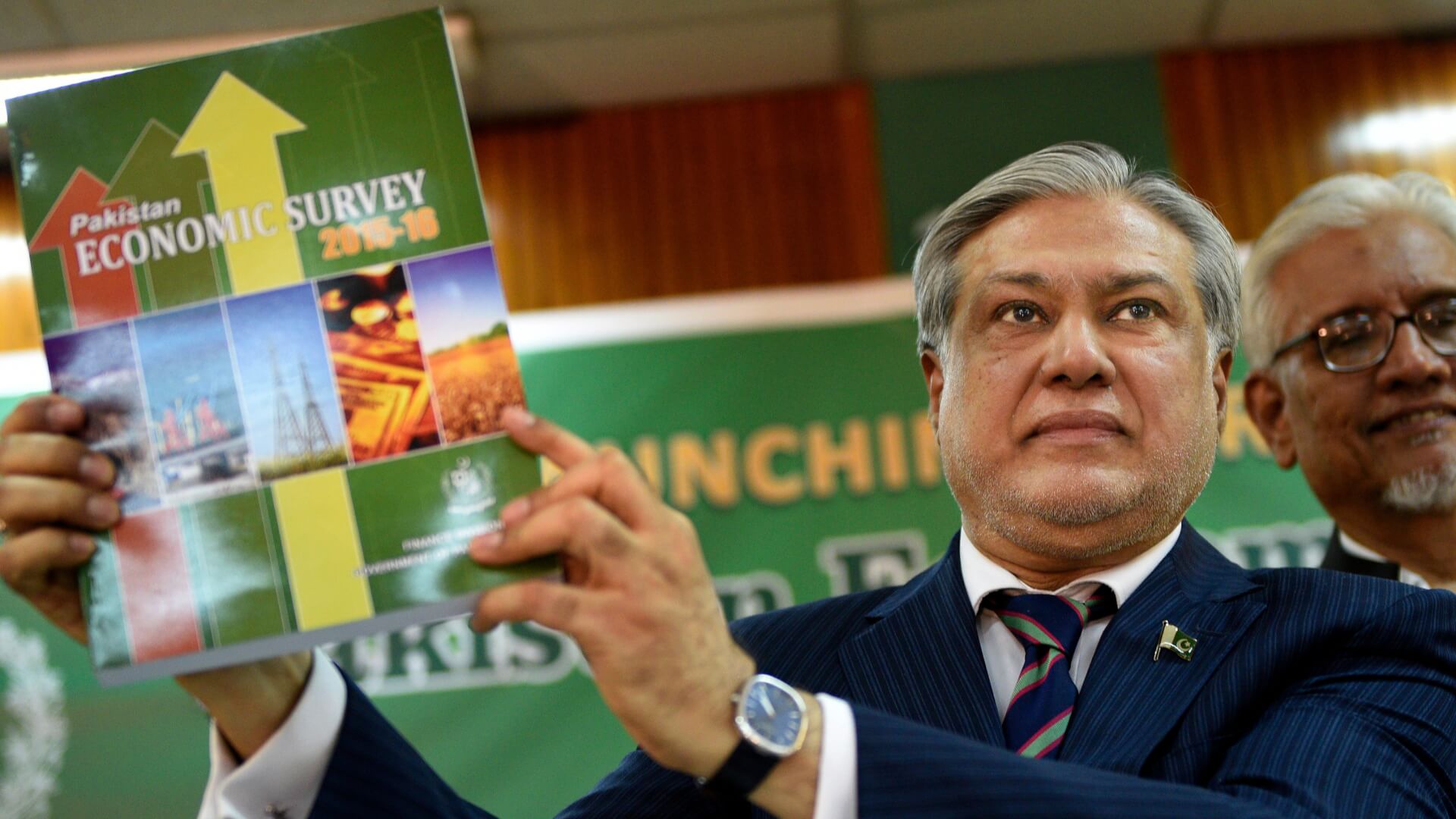Newly-appointed Pakistani Finance Minister Ishaq Dar touched down in Islamabad on Monday night, ending his self-imposed five-year-long exile in London to replace Miftah Ismail.
Dar must formulate policies to combat inflation, which has reached 42.3%, and arrest the fall of the rapidly depreciating rupee, which is now trading at 240 against the United States dollar (USD).
He is also tasked with securing the support of international allies to revive Pakistan’s foreign reserves, which have fallen from $20.1 billion in August 2021 to $8.4 billion, as of July this year.
قائد مسلم لیگ ن محمد نوازشریف اور وزیراعظم شہباز شریف نے مجھے کہا ہے کہ میں وزیرخزانہ کی ذمہ داری قبول کروں تو انشاءاللہ پاکستان جس معاشی بھنور میں پھنسا ہے اسے اس سے نکالنے کی بھرپور کوش کریں گے.@MIshaqDar50 pic.twitter.com/mHfJTwQib9
— PML(N) (@pmln_org) September 26, 2022
This is Dar’s fifth stint as finance minister. In 1998, after Pakistan emerged as a nuclear power and was met with economic challenges, Dar maintained a favourable exchange rate of Rs. 54 against the USD, up from Rs. 67.
Thereafter, from 2013-2018, he secured $550 million in aid from the International Monetary Fund, once again preventing the Pakistani rupee from slipping. In fact, he was referred to as the “deputy prime minister” because he led over 40 economic, legal, and political parliamentary committees.
Dar then left Pakistan in 2017 under the pretext of medical treatment. However, his departure coincided with the initiation of a corruption trial against him. The court has now suspended the case and the arrest warrants, facilitating his return.
In a meeting with Mian Nawaz Sharif and PM Shehbaz Sharif today, I have verbally resigned as Finance Minister. I will tender a formal resignation upon reaching Pakistan. It’s been an honour to serve twice as Finance Minister. Pakistan Paindabad
— Miftah Ismail (@MiftahIsmail) September 25, 2022
Dar said he returned at the request of Pakistan Muslim League-Nawaz (PML-N) chief Nawaz Sharif and Prime Minister Shehbaz Sharif. He declared, “We will take this country out of the economic vortex… we will take Pakistan out of the economic vortex like in 1999 and 2013-14, there is a lot of hope that we will go in a positive economic direction.” Dar will take oath before the parliament on Tuesday.
Recalling his previous success in the position, Amir Muqam, Shehbaz Sharif’s advisor on political and public affairs, said Dar is “the most successful finance minister” in Pakistan’s history and would soon bring inflation under control and lead the economy to prosperity.
Former PM Imran Khan, meanwhile, called Dar the “biggest conman of Pakistan”, saying he had gone into exile after being unable to answer questions about his illegal assets. Khan added, “(Dar) fled the country on the pretext of treatment. It has now elapsed three and a half years, and we do not know what treatment he is seeking abroad.”
I have seen how hard you @MiftahIsmail have worked day and night to save Pakistan from default and to avert the economic disaster created by Imran Khan. You deserve appreciation from the entire nation and especially of PMLN.
— Marriyum Aurangzeb (@Marriyum_A) September 25, 2022
Prime Minister Shehbaz Sharif and Information Minister Marriyum Aurangzeb accompanied Dar in the special flight that brought him back. Former Finance Minister Miftah Ismail, who stepped down from his position yesterday to pave the way for Dar to replace him, was also a part of the delegation. Tendering his resignation, Ismail said, “I worked to the best of my ability for four months, and remained loyal to the party and the country.” Ismail will not continue to hold any position in the government.
Shehbaz Sharif likely met with Dar and his brother Nawaz during his recent trip to London to attend Queen Elizabeth II’s funeral. Thereafter, he departed for New York to attend the United Nations General Assembly’s 77th session. While in New York, the PM also met with International Monetary Fund Managing Director Kristalina Georgieva and secured assurances on three critical programme relaxations that will help mitigate the losses caused by the floods. To this end, the IMF will expedite the release of the $1.1 billion, halt tax requirements on petroleum products and fuel, and relax the current account and fiscal deficit targets to facilitate cotton, wheat, and rice imports.

